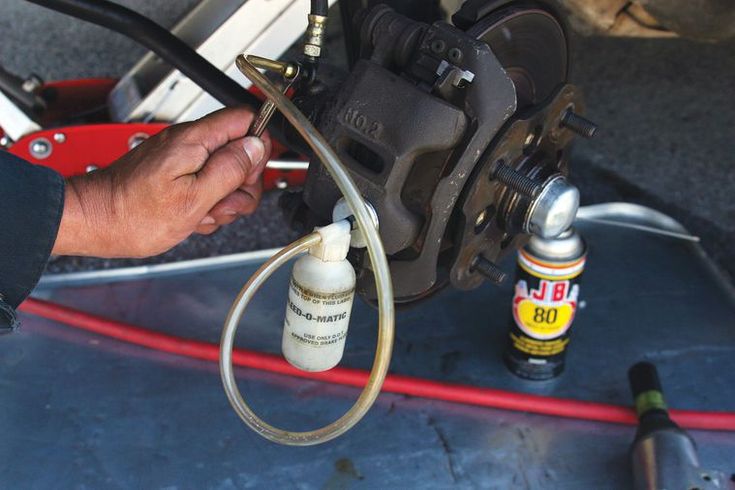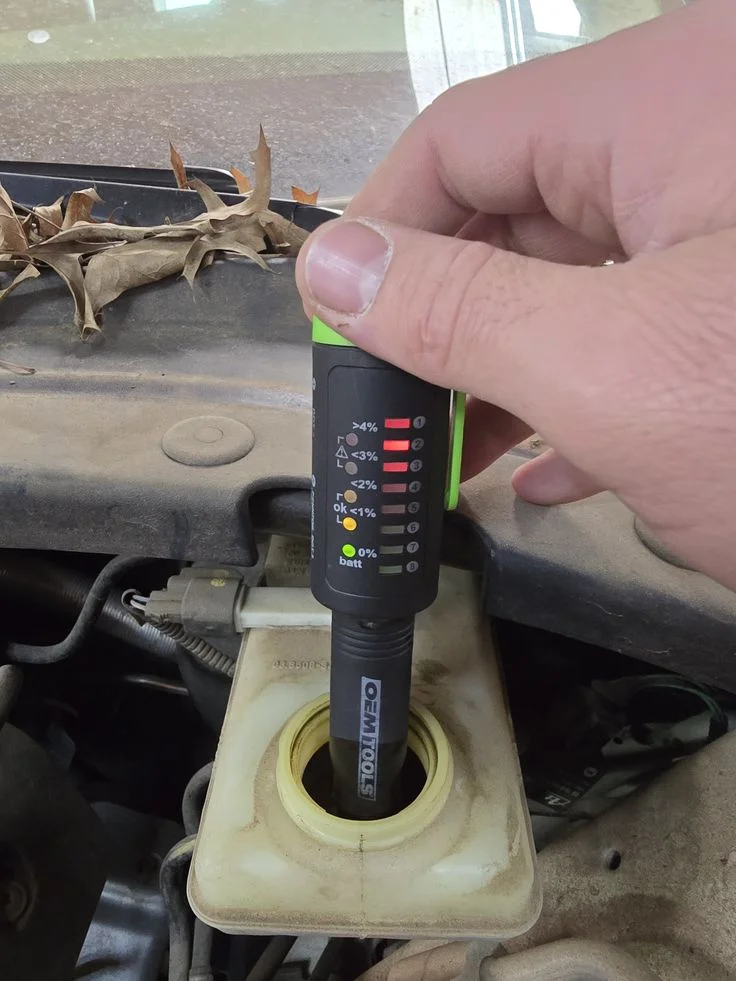In 2022, over 264,000 vehicle accidents were directly caused by brake malfunctions, that's one collision every two minutes across America. Here's what's even more alarming: most drivers don't realize they're driving around with compromised brake systems until it's too late.
"My brakes have been spongy recently but they still work," drivers often tell me, completely unaware that their spongy pedal is screaming danger.
Your brake system operates on a simple principle that can't tolerate compromise. When you press the brake pedal, you're creating hydraulic pressure that travels through brake lines filled with incompressible fluid. This pressure forces brake pads against rotors or drums, creating the friction that stops your vehicle. But here's the critical part: the system only works when it's completely sealed and free from contamination.
The Hidden Menace
Air in your brake lines is like kryptonite to Superman, it completely destroys the system's superpowers. Unlike brake fluid, air compresses under pressure. When air bubbles contaminate your brake lines, pressing the pedal compresses these bubbles instead of transferring force to your brakes. The result? A spongy, mushy pedal feel that gradually worsens until you're left pumping frantically with minimal stopping power.
Air contamination occurs through several pathways. The most common culprit is improper brake bleeding during maintenance. When mechanics rush through the bleeding process or use incorrect techniques, air pockets remain trapped in the system. Additionally, worn seals in master cylinders, calipers, and wheel cylinders allow air to sneak in over time.
Temperature plays a crucial role here. During heavy braking, brake components can reach temperatures between 400 and 500 degrees Fahrenheit. These extreme temperatures cause any moisture in the brake fluid to vaporize, creating air bubbles that compromise system integrity.
The Silent System Killer
Brake fluid leaks are insidious because they often start small and remain invisible to drivers. A tiny leak might not immediately affect brake performance, but it creates two devastating problems simultaneously. First, the hydraulic system loses pressure, reducing braking force. Second, the leak allows air to enter the system, compounding the problem exponentially.
Common leak locations include brake lines, master cylinder seals, caliper pistons, and brake hose connections. What makes this particularly dangerous is that drivers often compensate unconsciously by pressing the pedal harder or pumping it multiple times. "I know my brakes, they get me home every time," they say, not realizing they're one emergency stop away from disaster.
The statistics are sobering: according to NHTSA data, brake-related problems account for 22% of all vehicle, defect crashes, making brake failure the second most common cause of mechanical-related accidents.
The Moisture Contamination Threat
Brake fluid is hygroscopic, it actively absorbs moisture from the atmosphere. This isn't a design flaw; it's intentional. Brake fluid absorbs water to prevent free water from pooling in brake components and causing corrosion. However, this protective feature becomes a liability over time.
As brake fluid absorbs moisture, its chemical properties change dramatically. Research by Castrol demonstrates that as little as 3.5% water contamination can reduce brake fluid effectiveness by up to 40%. More critically, water-contaminated brake fluid has a significantly lower boiling point. Under hard braking conditions, this moisture vaporizes, creating air bubbles that make your pedal feel like it's connected to nothing.
Professional Diagnosis and Solutions
The first step in addressing brake system contamination is proper diagnosis. A qualified technician should perform a comprehensive brake system inspection, including checking brake fluid condition, testing for leaks, and measuring pedal travel and firmness.
For air contamination, professional brake bleeding is essential. Modern bleeding techniques using pressure or vacuum systems are far more effective than traditional manual bleeding methods. These systems ensure complete air removal, something that's nearly impossible to achieve with the old "pump and bleed" method.
Fluid leak repairs require identifying and replacing faulty components. This might involve master cylinder rebuilds, caliper replacements, or brake line repairs. The key is addressing the root cause, not just topping off fluid levels.
Moisture contamination requires a complete brake fluid flush. This involves removing all old fluid and replacing it with fresh fluid that meets your vehicle's DOT specifications. The process should be repeated every 12 to 24 months, regardless of mileage, to maintain optimal system performance.
Your First Line of Defense
Prevention starts with understanding warning signs. Watch for these critical symptoms: brake pedal feels spongy or soft, pedal travel increases, vehicle pulls to one side during braking, grinding or squealing noises, visible fluid leaks, burning smells, or steering wheel vibration during braking.
Regular maintenance is non negotiable. Have your brake system inspected annually, even if no symptoms are present. Check brake fluid levels monthly and examine the fluid condition. Fresh brake fluid should be clear or light amber; dark, cloudy, or contaminated fluid needs immediate replacement.
Remember, brake failure is 1.4 times more likely during summer months due to increased heat exposure. Schedule brake maintenance before hot weather arrives, not after problems develop.
Your brake system can't negotiate or compromise, it either works at 100% capacity or fails catastrophically. That spongy pedal you're ignoring isn't just an inconvenience; it's a warning that your vehicle's most critical safety system is compromised. Every day you delay proper repair, air and moisture contamination worsen, bringing you closer to complete brake failure.
Professional brake system service isn't an expense, it's an investment in your safety and the safety of everyone sharing the road with you. Don't become another statistic in the 264,000 annual brake-related accidents. Address brake system issues immediately, maintain your system properly, and never ignore warning signs.
Your life depends on it ‼️


Comments (0)
Please login to join the discussion
Be the first to comment on this article!
Share your thoughts and start the discussion